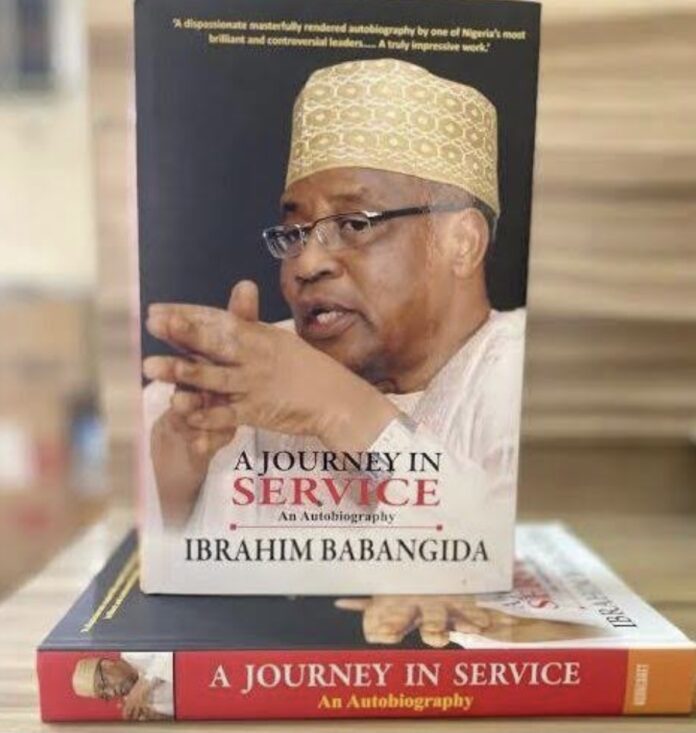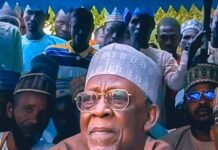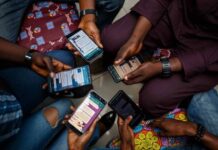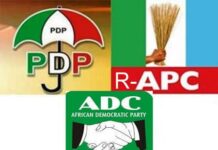Review without a view (II), by Abubakar Idris
It’s really enticing that man, in his natural quest and curiosity, wants to understand everything about all things – even though it’s an obviously unattainable goal.
Observing, reading, speculating, conspiring, discussing, studying, manipulating, theorising…, in answering an “if” question of history, man hardly provides a strictly wrong or right answer. This is simply because anything could be anything. Everything is just within the spectrum of possibility. What “if”, for example, Nigeria was colonised by the Spaniards?; Is a question can be answered from a multiple dimensions.
Reviewing the autobiography of the Former Head of State and Commander-in-Chief of the Armed Forces of the Federal Republic of Nigeria, General Ibrahim Badamasi Babangida (IBB), named ‘A Journey in Service’, is an inexhaustible assignment. On a lighter note, borrowing the easiest yet [at least in ruffling feathers] most effective text analysis, a style often used by the critics of Sheikh Fantami and or his works, let us by taking a glance at the title of the memoir furiously carry our pens and jump into action. After all, we’ve heard hearsays much enough to take a side. Phew…
First thing first. They say he confirmed the winning of the famous 1993 Presidential election by the business mogul Chief Moshood Kashimawo Olawale (MKO) Abiola. And, so gentlemanly, the evil genius didn’t make any effort to counter the annulment, done under his watch, for peace to reign. He regretted and asked for forgiveness. Is that right?!
Well, he can say that. He is such a nice guy [in Donald J. Trump’s voice]. I like him. He’s a successful guy, a really successful guy.
Meanwhile, going by what we know about the man, if not for his health status, Badamasi, a maestro in rhetoric, would definitely make an excellent graduate assistant (GA) in my University’s Department of Political Science. Though a GA for the start, the author of ‘A Journey in Service’ would most certainly be awarded his MSc the day he resumes, his PhD in a week, and attaining readership is a possibility within a month’s time. By the time he is to be crowned with the professorship title, during the immediate convocation, naturally, our character would be too humble not to request to be re-nicknamed the political GOAT – for, many steps ahead of Maradona, he is clearly the combination of Ronaldo, Messi, and Mbappe.
In the court of analysis however, the one important question we ask whenever we put history on trial is whether to judge our subjects by their ideals or the outcomes of their actions. Give it a look: While politicians insist that they stand for democracy and human rights (thus, better than soldiers), the argument of the uniform men is not any weaker; they are the nationalists whose role it is to restore order, fight corruption, and wage war against indiscipline – by sometimes risking their own lives (hence, the right patriots to lead).
The whole debate sounds so sweet and convincing that one is tempted to suggest a system of government or constitutional arrangement that allows for a tenure for one and another for the other – continually.
Leaning towards social critics however, it is hard to believe either side. For if for nothing, their actions contradict the gospels they preach. Even, to compound that, most of the military era soldiers are now politicians in their own rights. Recall for instance, it’s a fact, known to many, that when G-34 (which, among other groups, was to become the People’s Democratic Party (PDP)), was established by some Nigerian politicians, one of their aims was to form a movement with a force capable of extinguishing military governance, for good, once and for all.
With Alex Ekwueme (the first elected Vice President (1979-1983) and Professor Jerry Gana (who previously served as a Minister) as the first Chairman and Secretary of the PDP respectively, it’s laughable that retired soldiers not only joined but ended up hijacking the party to make one of them the presidential candidate and later the first president in the Nigeria’s fourth republic. So, who is who? Who are we to believe? Who are we to blame? Who is deceiving who? Who is the actual heroic champion of the power? Are the politicians ready? Can we even see any difference between the civilians and the soldiers?
Once pictured as a civilian vs military dichotomy, transmuted to South vs North dichotomy, the ‘June 12’ incident, nobody ever sees it as a Muslim vs Christian dichotomy though, was a power heist involving friends – with MKO at the receiving end. In my view, ours is a zero-ideology political arena. I especially expect Marxists (hoping we still have them) to agree with me here: the bunch of unforgiving capitalists, who rule[d] Nigeria, death or alive, soldiers or politicians, whatsoever, have no regard for the ordinary citizens in their mind. Quote me.
REVIEW WITHOUT A VIEW (II)
It was Helen Keller, the blind deaf American human rights activist, disability advocate, and an excellent writer, who said: “The country is governed for the richest, for the corporations, the bankers, the land speculators, and for the exploiters of labour.”
As a Nigerian (socially between working and middle classes) with vision and hearing still intact, AlhamdulilLah, I can’t see or hear anything different. Thus, so fed up hearing “democracy was r*ped”, or “A and B were dictators”. What wasn’t r*ped, and who wa/[i]sn’t a dictator FisabilLahi? Is it Fulgencio Batista or Fidel Castro?
In case it isn’t clear as [and appearing for] what it is, we may well take another look. Taking the most recent samples to the nearest laboratory, in the interest of democracy and development, tell me, for I genuinely want to understand: of what importance was it to the North when their son was the president, or to the South when their own is helming the boat (oh, yacht)?
All military Heads of State and democratically elected Presidents aside, the relationship between Babangida and Abiola was for a very long time so good that some historians and analysts were perplexed by what unfolded before them after the annulment: the bitterness, the chaos, the deaths, and then the silence. With not much to hold on, conspiracy theorists took to the street with “the General knows the politician very well, so…” But since he was elected by his countymen, in a process seen by many to be free and fair, that makes no sense whatsoever.
Close to the above is another contention, shared by the legendary historian, Max Siollun, in his ‘Soldiers of Fortune’, that, MKO wouldn’t have been as successful without the role played by his soldier President friend IBB. So, if it was, as explained by a friend recently, a case of two elephants fighting whence the grasses suffer, so be it. However, suffice is to say that it was never about the sold dichotomies. It can’t be about anything to do with talaka. It was all about their own interests. They are the very same people, birds of the same feather, two sides of a single coin.
Wonderful! I also forget other issues such as the assassination of Dele Giwa, execution of Mamman Vatsa, and his refusal to appear before the Oputa Panel – the Nigerian 2001-commissioned Human Rights Violation Commission. Here, I think we have to be contented with just a question since our sources also say that he said he hopes for the unpuzzling of the Giwa mystery, and seems to intentionally avoid the barysphere. My question, odd, is not to the author: Now that we have the other side of the story, are Nigerian human rights activists – including journalists and lawyers – and IBB at par? I only wish Chief Gani Fawehinmi (SAN) is alive. The book would have been an excellent exhibit… May his soul rest in peace.
Closing, to mind jumped the words of a “rebel”. I am yet to read a better description of Nigeria and Nigerians than the one in ‘Because I am Involved’, by the first president of the erstwhile Republic of Biafra, Chukwuemeka Odumegwu Ojukwu. It was the Oxford-educated Nigerian military officer who said, “Our leaders are pseudo leaders; our intellectuals, pseudo intellectuals; our professionals are pseudo professionals; whilst our occupations are pseudo occupations. Our middle class is pseudo-middle class; our elite are pseudo-elite, our socialist, Marxists, liberals and even our conservatives, are very often pseudo”.
Standing on the shoulders of William Shakespeare, our country is comparable to a theater with players acting on its stage while some work the script and many watch with amusement. From NSA-Canada, to USAID-Boko H*ram, and now to the June 12 saga, we are a good example of ‘one day one drama’. And, as can quite easily be deduced, Ojokwu was himself a pseudo rebel, like this writer a pseudo writer.
To be continued!
Follow the Neptune Prime channel on WhatsApp:
Do you have breaking news, interview request, opinion, suggestion, or want your event covered? Email us at neptuneprime2233@gmail.com





